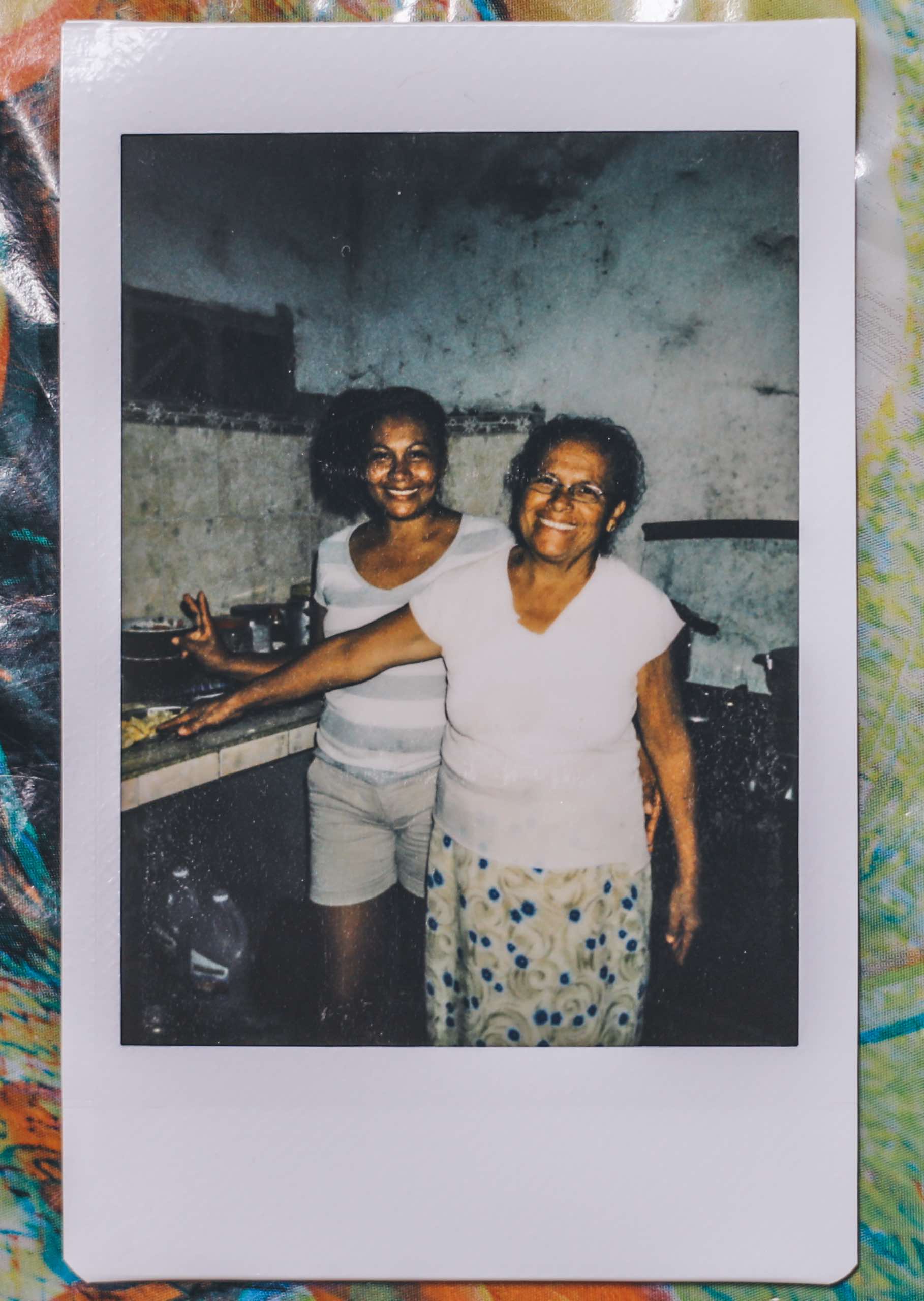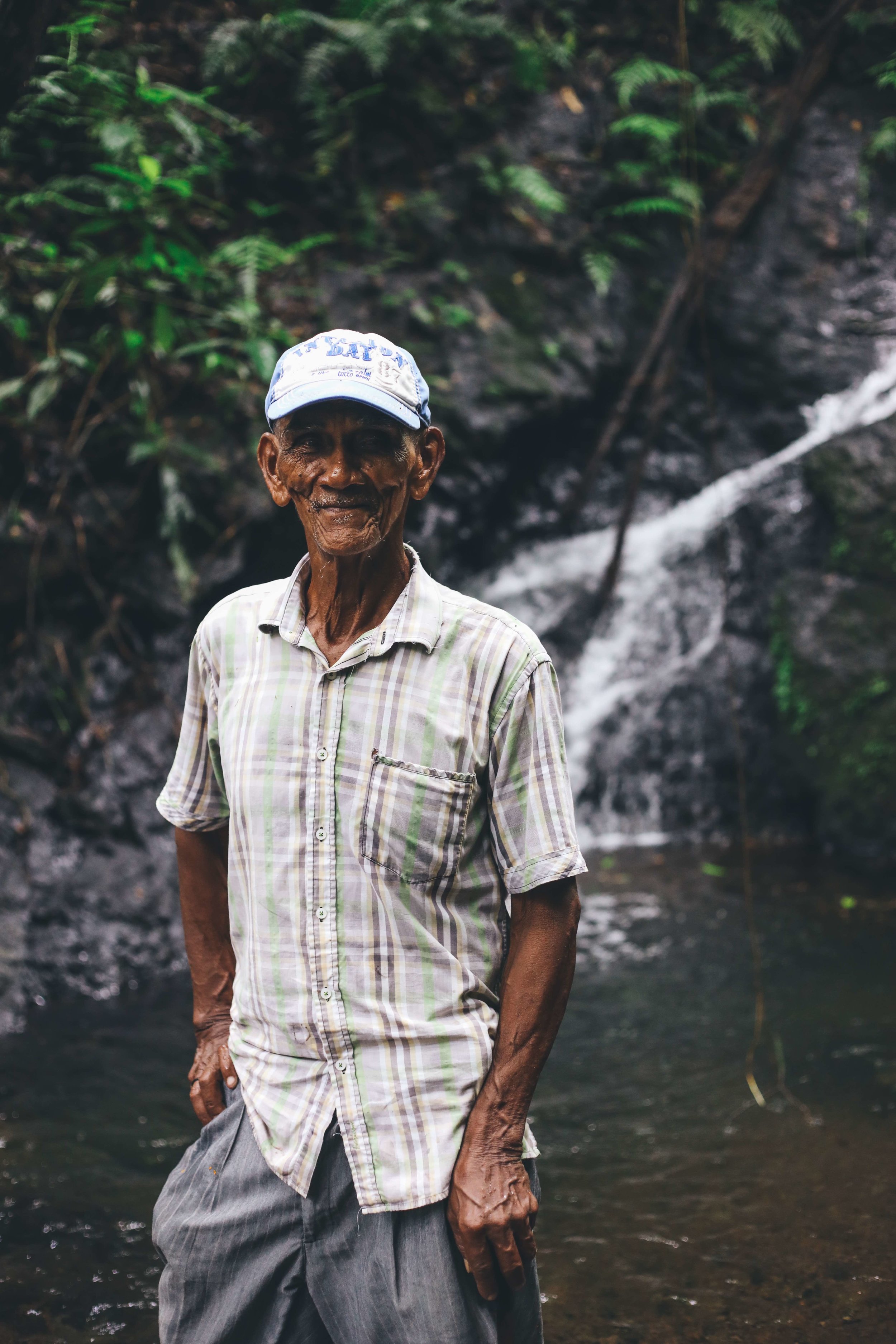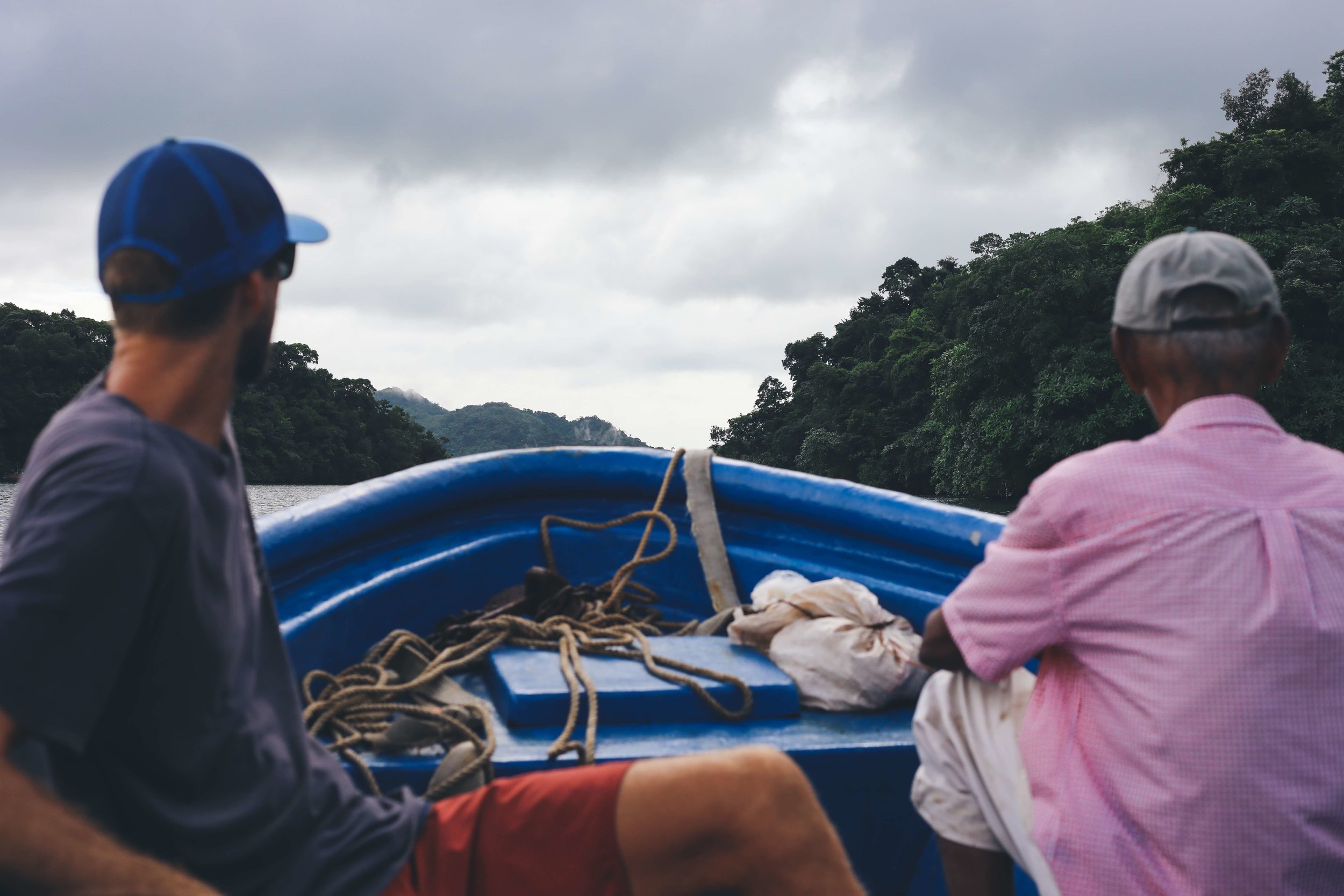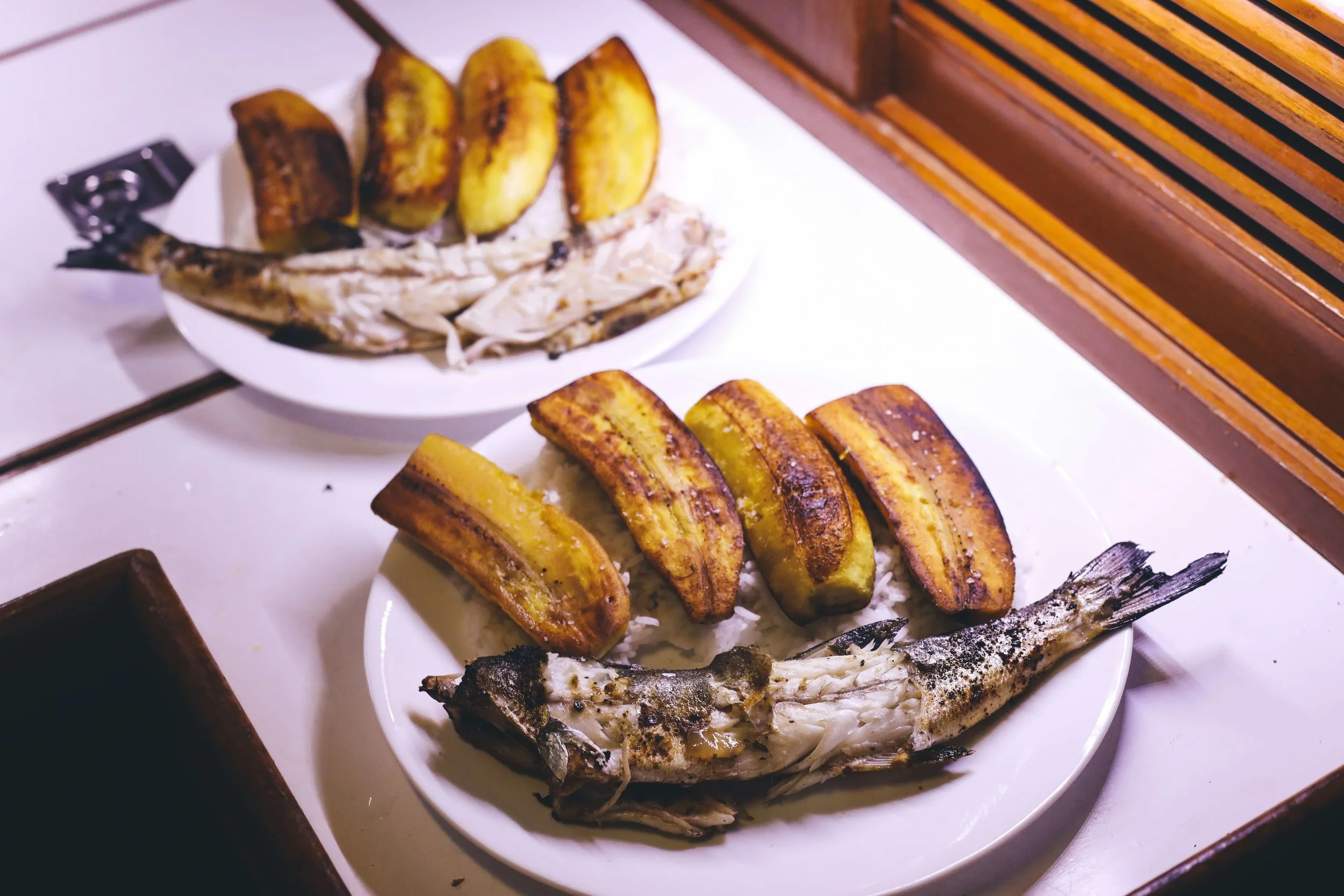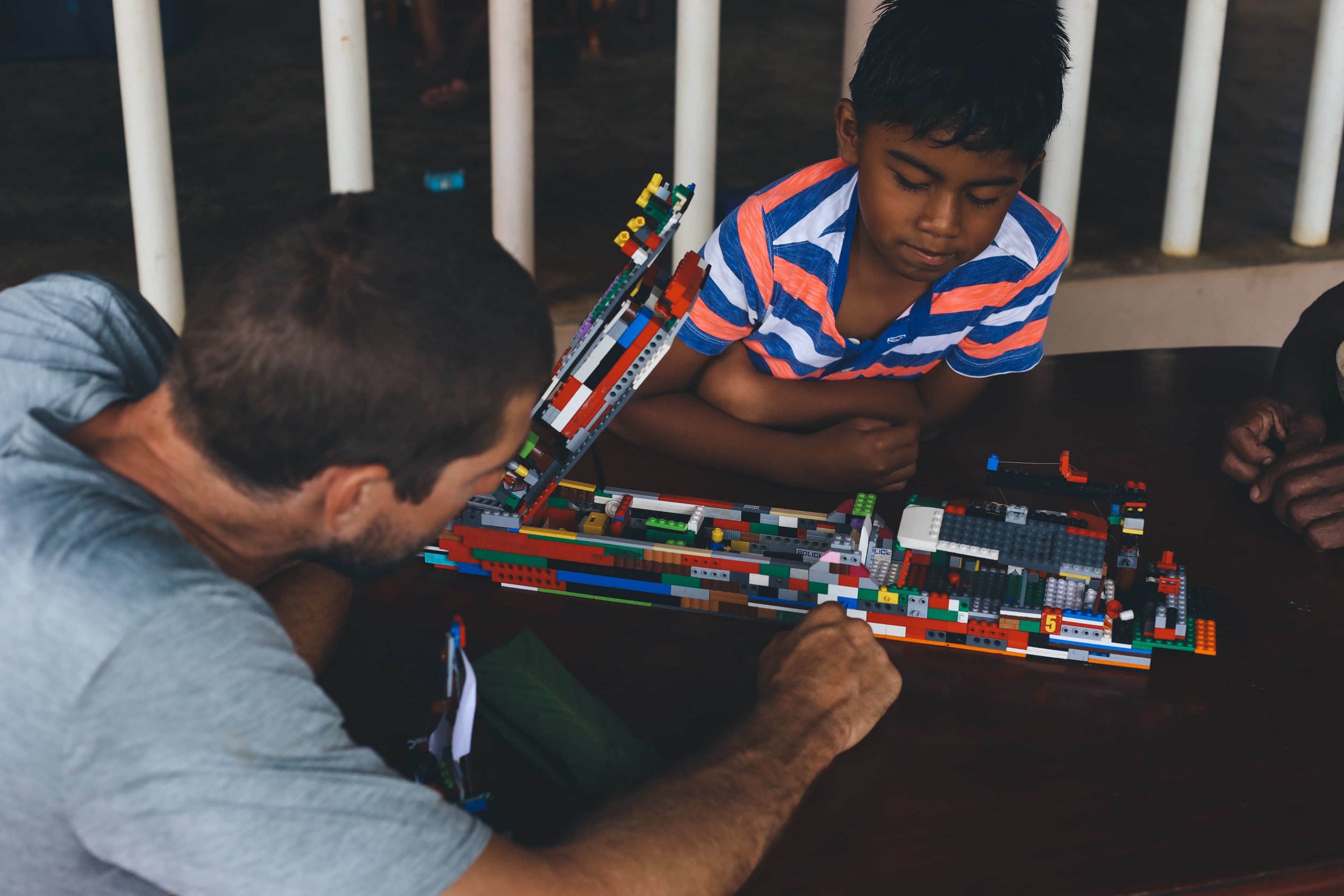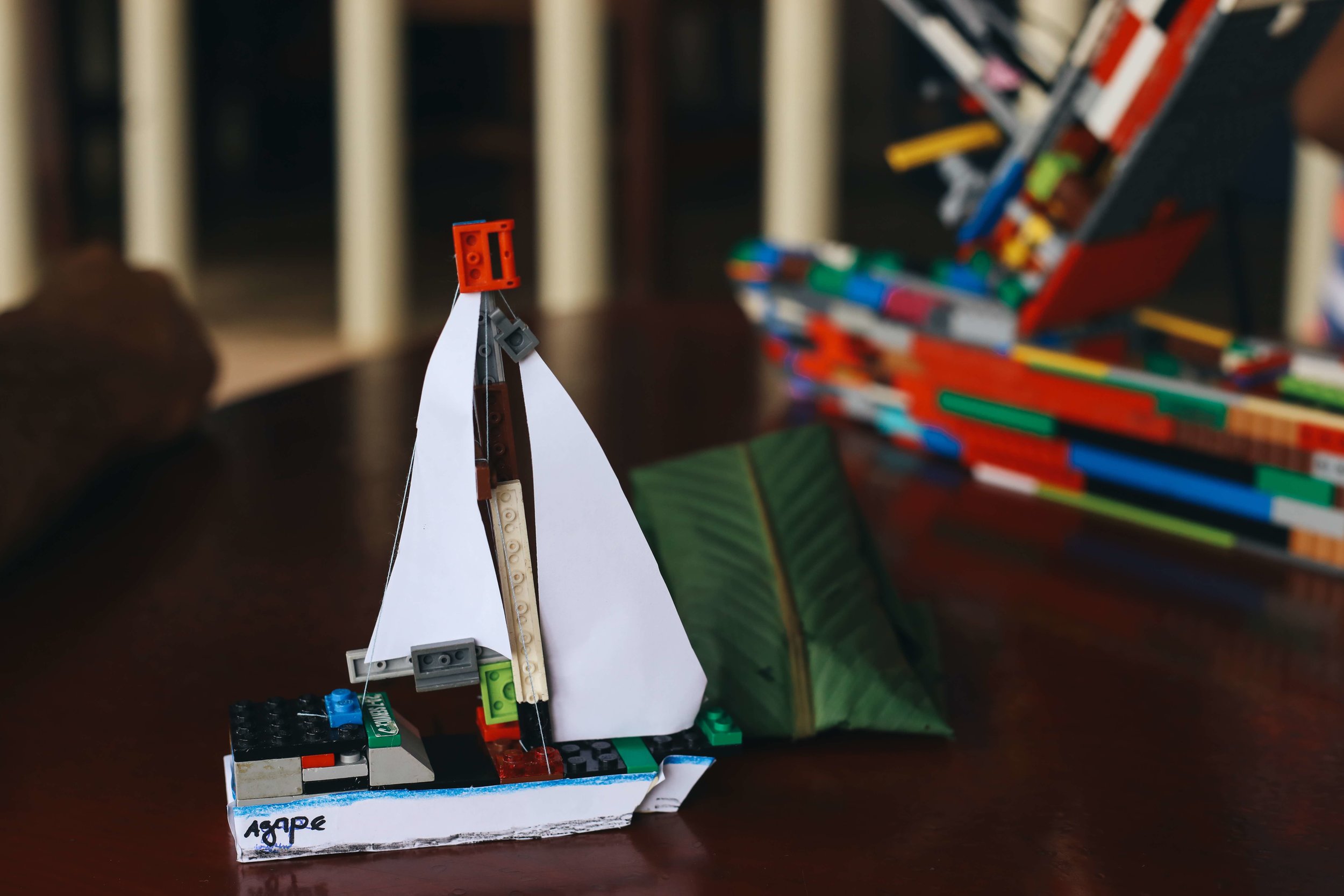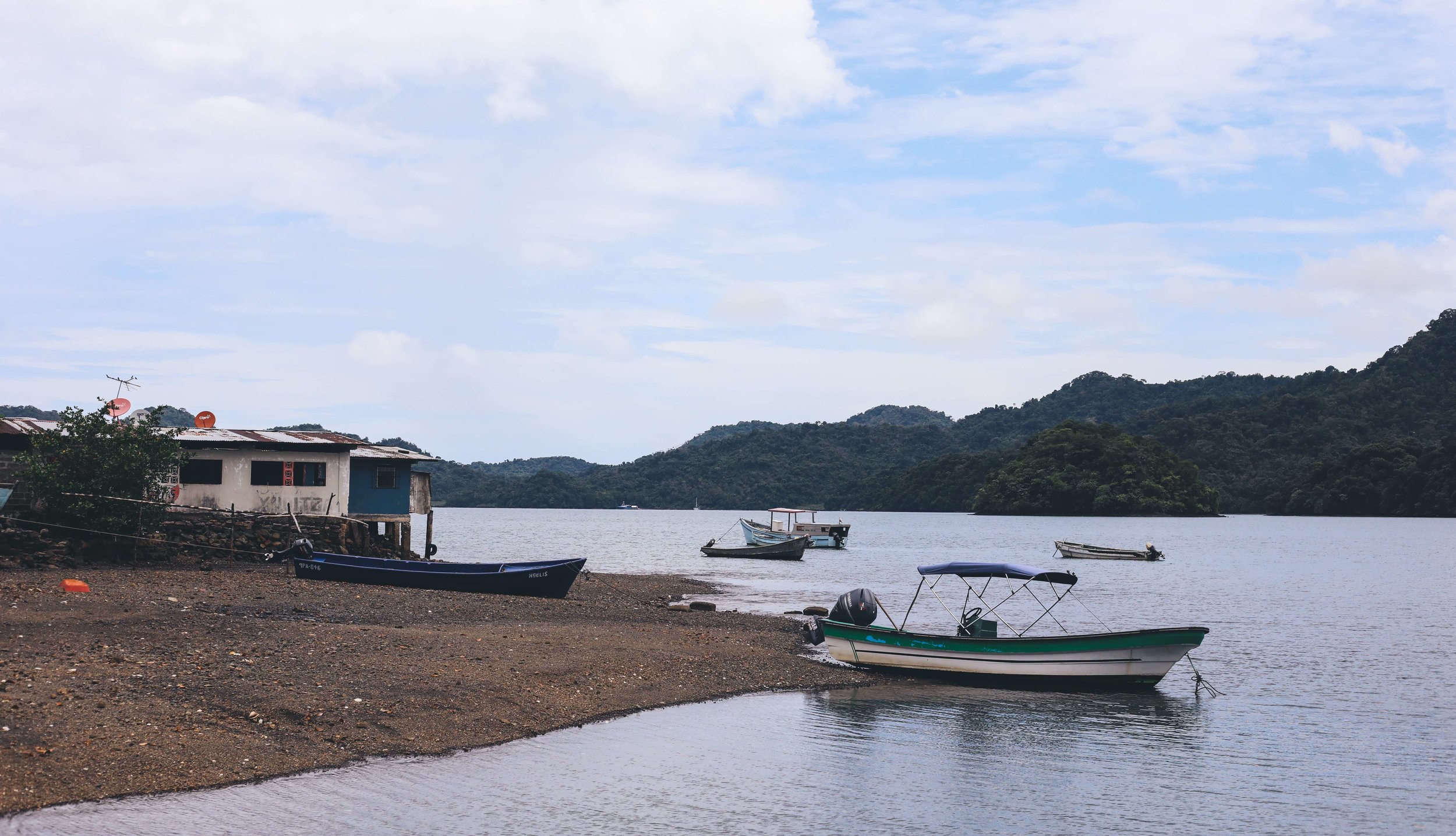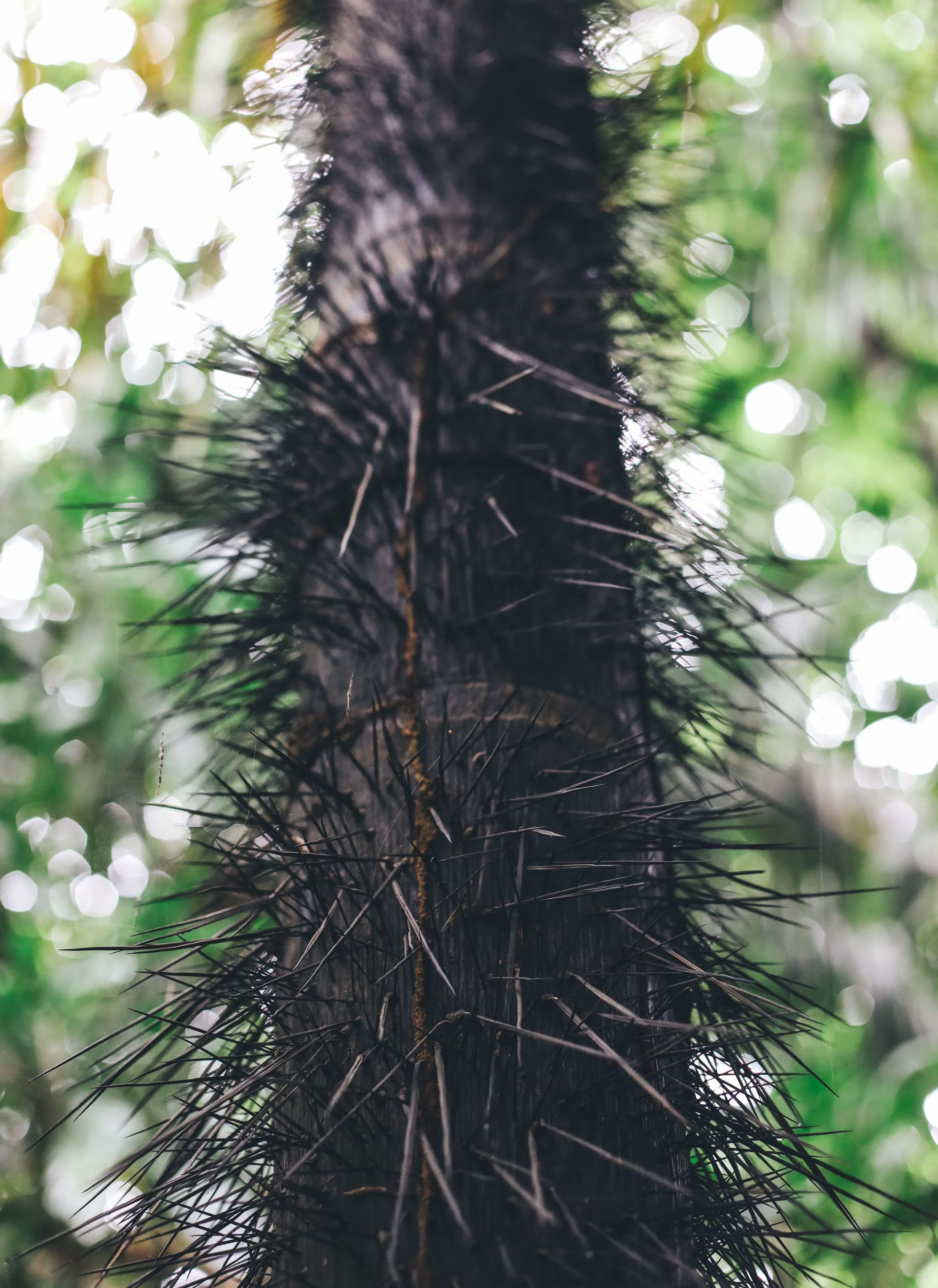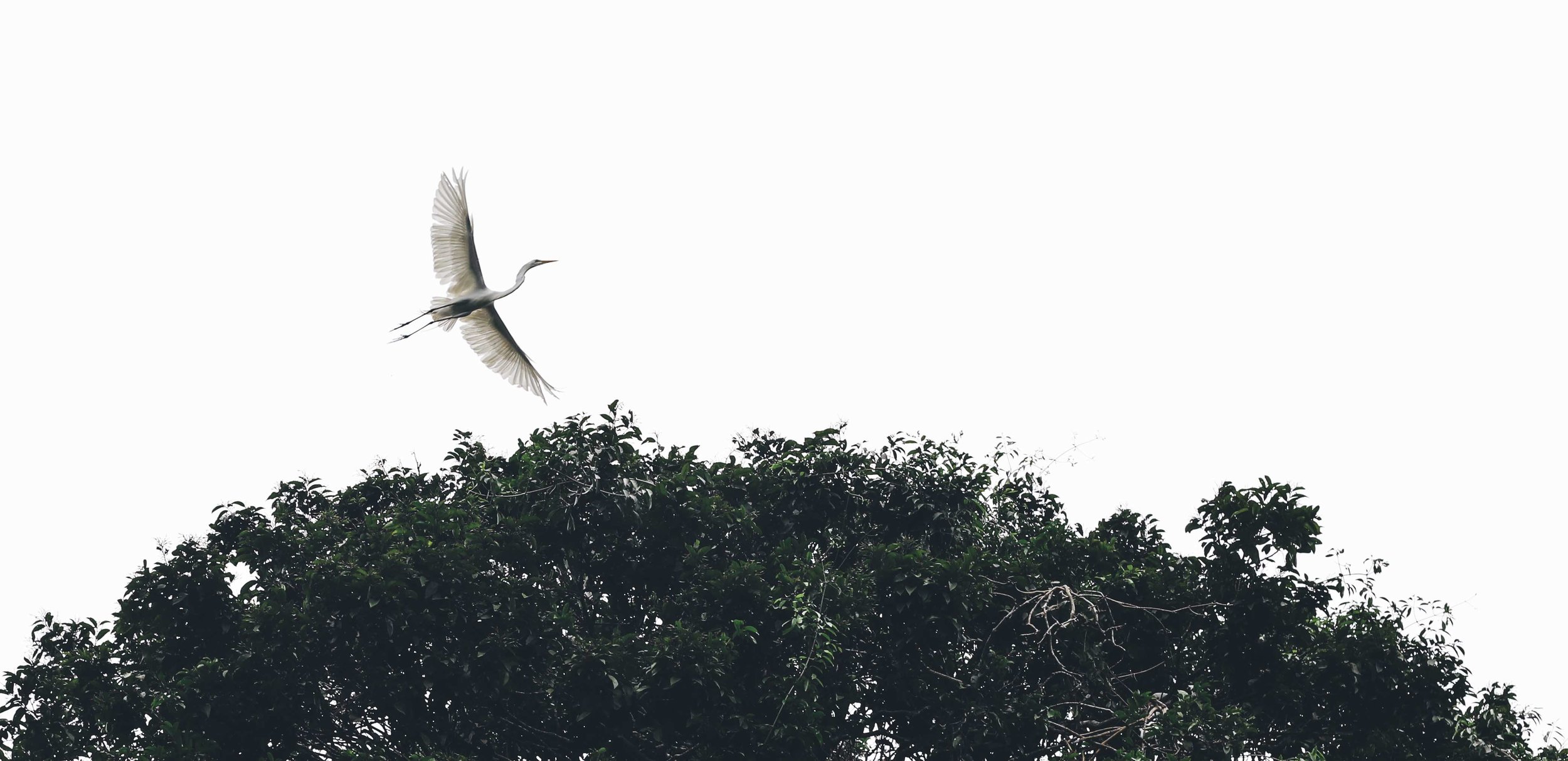Bahia Honda
Bahia Honda is a very special place, when you enter the bay it’s like stepping back into time. There are no roads that lead here, you must come by boat or by horseback over the mountains. It is remote and wild, and unlike any other place we’ve ever visited. When you arrive in Bahia Honda, you get the sense that time moves just a little bit slower here. Families still commute in dug out canoes, propelled by hand carved wooden paddles, in fact, it’s probably the same canoe that their fathers and grandfathers used.
Agape glided across the protected, flat water of the entrance of the bay and into Honda, sailing wing on wing. We were overwhelmed by the beautiful scenery surrounding us! Furling in the jib and turning up into the wind, we dropped the main sail as we prepared to find the perfect place to anchor, when the tranquility and serenity of the moment was suddenly broken as we noticed a panga full of masked men, dressed in black heading toward us at high speed. As they grew closer, we could make out large rifles in their hands and that their faces were covered in those creepy 3-hole ski masks. The panga was black and didn’t seem to have any distinct markings.
The worst quickly ran through our minds and we debated if I should hide down below, but as my Spanish is better I decided to stay up on deck. The men seemed calm as they approached and there was no yelling or arm gestures, so we continued on motoring towards shore. It wasn’t until they were right along side us that we could we make out small Panamanian flags velcroed to their arms and Aeronaval written across the back of the boat.
We immediately relaxed a bit and slowed down the boat. We were a little confused as they hadn’t radioed us ahead of time and wanted to board us while we were still underway so close to shore. They were very courteous and explained that they just wanted to check that our papers were in order. Several men jumped on board, all still masked except for one man. They checked our documentation and clearance papers, and wanted to know how long we’d be staying, they asked for a soda and went on their way.
We knew Panama didn’t have a military, and weren’t aware that they had a National Aeronaval Service at the time. We later learned that this is a branch of the Public Forces of the Republic of Panama, responsible for carrying out naval and air operations. Its main function is to "Performprotection, surveillance, security and defense of the air and maritime jurisdictional areas of the Republic of Panama ' and as of January 2018 the Naval and Air Service has approximately 4,000 troops in active service, with 20 boats and approximately 20 aircraft.
We were told that there had been a lot of drug trafficking in the area, as drug runners moved cocaine north from Colombia, this just so happened to be a remote and safe location for them to stop. Since the Aeronaval started patrolling the area there have been several busts, I don’t think they thought we were smuggling drugs but rather they just don’t get many sailing boats here and I think just wanted to have a look on board. We also heard that since they started patrolling the area most of the village’s fishermen no longer go out in search of fish, but rather for bundles of drugs that drug boats have thrown overboard before getting boarded. So many men have found drugs in these waters that they have accumulated a small wealth for themselves, which doesn’t mean much here, as there are only a few little shops to buy basic goods. The men now have enough money to not work and get drunk all day. They’ve earned their nicknames as the village’s barrachos (drunks), and you can easily spot them by their unusually large outboards.
After our welcoming party left, we continued on to a place marked “Domingos” on the charts and away from the main village on the island of Isla Talon. Almost immediately after dropping our anchor, two canoes paddled out and pulled along side us asking if we wanted to trade for or purchase any wood carvings, fruits or vegetables. The men turned out to be Domingo and his son Nelson in one canoe, and in the other was Domingo’s other son, Kennedy. We had heard that these men often come out to visit boats stopping through and ask to trade for things they need like hats, fishing line, lures, clothes, backpacks, gasoline and milk in exchange for fresh fruits and hand carved goods. We told them we’d put together a bag of things for them and to come by later to pick them up.
That evening, right as we were getting ready for bed a massive squall blew through blowing over 35kts, shredding our sun shade we had just put up. We surfed around at anchor for what felt like hours and the boat shook as the thunder from nearby lightning strikes echoed by. One bolt even hit one of Domingo’s palm trees!
In the morning we took the dinghy out for a spin and were waved over by Domingo and Nelson. They welcomed us into their home and gifted us massive amounts of fresh produce. We spent hours getting to know Domingo and his family. His daughter Rosalin was kind enough to help translate Domingo’s rapid fire Spanish into a Spanish I could understand. During our conversation I mentioned how I enjoy cooking, especially Thai food, they said they had never had the opportunity to try Thai food before, so I offered to bring everything over and cook them dinner the following night.
Cooking with Rosalin and Grandma!
Gifts from Domingo and his family: a coconut scrapper, fresh herbs, a bowl made from a gourd they grow, a lego Agape and a ring made from a turtle shell.
Just some of the beautiful produce we were given.
In the morning Kennedy stopped by with a very special gift, a tomato! I hadn’t seen one in weeks and when we first arrived he asked if we needed anything and I asked if they grew tomatoes. He apologized and said no, but since we arrived, he had a friend make a supply run to the nearest port-town of Puerto Mutis and he kindly asked him if he could grab me a tomato while he was in town. It was the most beautiful color red and at the time it felt like the most thoughtful gift I had ever been given!
That evening we headed to shore loaded with everything I needed to whip up a yellow Thai curry. Grandma and Rosalin were very excited to have me cook in their kitchen with them, they were very helpful in prepping all the vegetables and asked me a lot of questions. While us ladies prepared dinner, the boys went out in search of coconuts to make fresh coconut milk for the curry, Josh then went to work grating the coconut meat with our new coconut scrapper made by Domingo out of his old machete. All in all there ended up being nine of us for dinner and it was a huge hit! I brought along extra spices and sauces to give them in case they like the flavors, and for dessert I also brought homemade chocolate chip banana breads. We talked late into the night and Josh even got in a few rounds of dominoes in.
We made plans to go hiking in the morning with Domingo and Nelson, and Josh told Edwin and Edwin Jr. (Domingo’s son in law and grandson) that he’d take them out dinghy fishing once we got back.
In the morning we met Domingo and Nelson on the beach with two of their dogs. We walked along the muddy coastline and up into the forest where his old house was located, along the way they showed us where we could collect lemon grass, avocados, limes, mangos, bananas, oranges and coconuts. The old farm house he used to live in, is now a ruin, but a handful of monkeys have moved into the mango tree out front. He then took us way back into the jungle to a waterfall, it was a fairly challenging walk and I was surprised at how agile Domingo was crossing the many creaks and fallen trees.
When we got back to the house I asked Rosalin how old Domingo was, she said, “We’re not really sure, maybe 78-80 years old. They didn’t keep track back then”. He didn’t even know his own birthday! I couldn’t believe that at 80 years old he was still out hiking. Not only that, Rosalin said he wakes up every morning at 5am and takes a cold shower before he starts work on the house and keeping up their land. He seemed as if he had boundless energy and could talk even faster than he could walk!
A howler monkey enjoying some ripe mangoes in front of Domingo’s old home.
Edwin taught us how to catch these small barracuda and snapper that are abundant in the bay. As we hadn’t seen a grocery store in months, this was our typical meal during our stay in Bahia Honda.
Later in the week Domingo offered to take us to visit his friends that lived in a small village up the nearby Rio Managua. There he took us around to meet all his old friends and buy some jungle crabs for dinner. The people living in this village live very simply. Dirt floors and hammocks to sleep in, some had raised beds with woven mats. There are no doors and families lived together in a common space. They cook over wood burning stoves and grew and collected most of their own food. It looked like a hard life, especially during rainy season when nothing seems to ever dry out.
On our way to visit a small village up the Rio Managua.
While we walked through the village Domingo asked if we could get a tour of the village’s school. It was pouring rain and school was not in session but it was nice to see that they had a place for the children to learn. Although the school is understaffed and most children only receive about 3 hours of school a day, 3-4 days a week.
Notice the skins of a jungle cat that was caught killing their chickens, and a hide of a jungle deer they hunted an ate.
We asked to see what the village’s biggest needs were, in hopes of returning during the dry season with goods from Panama. Unfortunately, we were unable to make it back, but if you plan on visiting Honda here are a few things you could bring along that would be a tremendous gift to the village:
Solar lights. They currently all use flashlights and when the batteries die they just get thrown into the jungle or sea, or burned as there is no trash service out here. At night jungle cats come into the village to hunt their chickens and they need lights to scare them away, as well as light up their homes after dark.
Deep cycle batteries and a small honda generator for the school. The school has solar panels installed but their batteries are completely dead.
School supplies like notebooks, pens, pencils, rulers and colored paper. Candies or treats are also really appreciated by the little ones.
The school’s vision and mission statements.
Heading back to Domingo’s to cook up a crab dinner.
We spent a week anchored out front of Domingo’s getting to know him and his sweet family, and we look forward to returning in the dry season to spend more time with them. We had every intention of coming back to spend Christmas with them and had made a huge list of thoughtful presents we could bring them, but more on why we didn’t make it later…
Once again, we should have stayed longer, but with the torrential downpours and scary lightning storms we had the marina where we’d leave Agape for the off-season in our sights. We were ready to decommission the boat and head home to visit friends and family during California’s summer.
The prettiest little bees I ever did see!
If you plan on visiting Bahia Honda and Domingo and his family, we can only recommend taking the time to get to know him and learn more about this special place. If you’d like to bring gifts for him and his family, here are a few recommendations:
Rain jackets. (4 M/L for the men, 2 childrens size M)
Sunglasses and sunscreen
Women’s blouses size M for Domingo’s wife
Short sleeved men’s dress shirts for Domingo size M
Skin cream EXOMEGA made by A-DERMA for Rosalin’s daughter
Dinosaur or boat figurines for Edwin Jr.
Fishing line, lures and hooks.
Sun hats, sun shirts and back packs
Batteries (AA, AAA, C, D)
Laundry and dish soap



